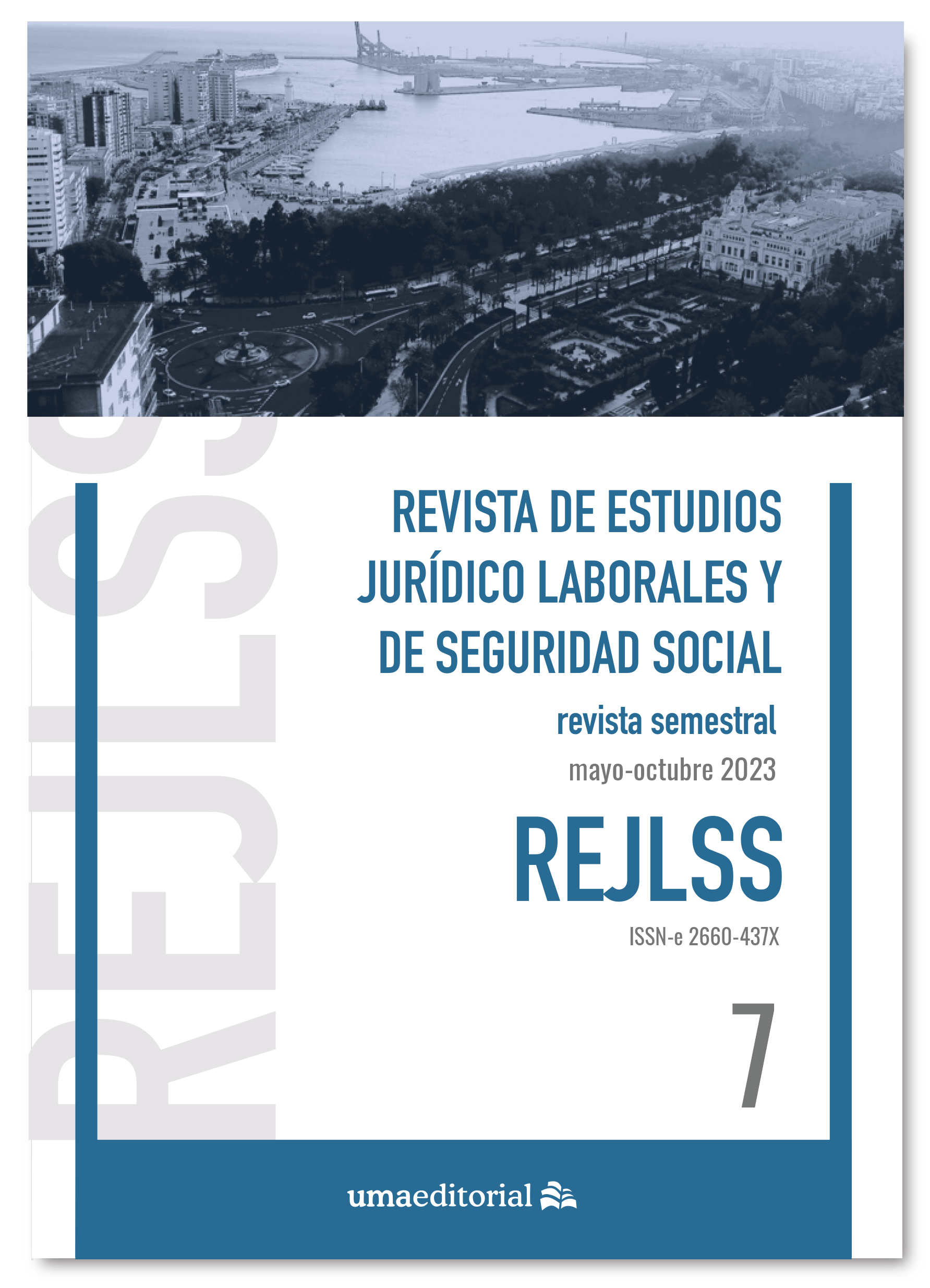Legal Protection of Autonomous Women in Cuba
DOI:
https://doi.org/10.24310/rejlss7202316849Keywords:
self-employment, working women, laws, discrimination, non-state sectorAbstract
The insertion of the role of working women in Cuba has managed to be one of the richest and most complex phenomena of the development of the nation in the last sixty years, today women are capable of performing the same tasks as men without differences. They are also being protagonists of non-state work on the island, self-employed or autonomous work that constitutes one of the ways by which the Cuban family has been able to legally obtain their income and change their living conditions. Currently our country is in a process of modernization of laws and legal growth and that is why from this article we will analyze how this form of non-state work is manifested in the Cuban legal system and how it legally protects women workers in this sector.
Downloads
Metrics
Publication Facts
Reviewer profiles N/A
Author statements
Indexed in
-
—
- Academic society
- N/A
- Publisher
- Universidad de Málaga. UMA Editorial
References
Silva González, J. L. y Pérez Véliz, A., “El derecho de la mujer al trabajo y a la maternidad en Cuba”, Revista de Ciencias Médicas de Pinar del Río, Pinar del Río, Cuba, 2019.
Díaz Cuellar, F. y Mestre Oviedo, J., “La mujer cubana: evolución de derechos y barreras para asumir puestos de dirección”, Revista Médica Electrónica, Matanzas, Cuba, 2017.
Redacción digital, “Trabajo por cuenta propia en Cuba entre oportunidades y retos”, Revista Trabajadores, Cuba 2021.
Silva González, J. L. y Menoya Zayas, S., “El derecho de la mujer trabajadora a la maternidad en Cuba: Reflexiones desde la perspectiva de la equidad de género”, Investigations-Investigaciones-Ikerlanak, vol.11, núm. 3, 2021.
Ramírez, L., Tribunal Supremo de Cuba, 2021.
Errero, A. y González, A., “Programa Nacional para el adelanto de la mujer. ¿Por qué viene después?”, Cubadebate, Cuba, 2021
Downloads
Published
How to Cite
Issue
Section
License
Copyright (c) 2023 Aydee Tamara Sosa Fernandez

This work is licensed under a Creative Commons Attribution-NonCommercial-NoDerivatives 4.0 International License.
In the Revista de Estudios Juridico Laborales y de Seguridad Social (REJLSS) we are clearly committed to a policy of open access to scientific knowledge (See Berlin Declaration).
Those authors who have publications with this journal accept the following terms:
This journal provides immediate free access to its content under the principle of making research freely available to the public. All the contents published in the REJLSS are subject to the Creative Commons license
Attribution-NonCommercial-NoDerivatives 4.0 International (CC BY-NC-ND 4.0)
Copyrights are of two kinds: moral and patrimonial. Moral rights are perpetual, inalienable, non-transferable, inalienable, unattachable and imprescriptible prerogatives. In accordance with Spanish copyright legislation, the authors who publish in REJLSS retain the moral right over their work, as well as the ownership of the patrimonial right, which will be transferred to the University of Malaga for its dissemination in open access.
The patrimonial rights, refer to the benefits that are obtained by the use or disclosure of the works. REJLSS is published in open access and is exclusively authorized to perform or authorize by any means the use, distribution, dissemination, reproduction, adaptation, translation or transformation of the work.
It is the responsibility of the authors to obtain the necessary permissions of the images that are subject to copyright.
Authors whose contributions are accepted for publication in this journal retain the non-exclusive right to use their contributions for academic, research and educational purposes, including self-archiving or depositing in open access repositories of any kind.
The electronic edition of this magazine is edited by the Editorial of the University of Malaga (UmaEditorial), being necessary to cite the origin in any partial or total reproduction.
The authors may adopt other non-exclusive license agreements for the distribution of the version of the published work (eg: deposit it in an institutional telematic archive or publish it in a monographic volume) provided that the initial publication is indicated in this magazine.
Authors are allowed and recommended to disseminate their work through the Internet (eg, in institutional telematic archives or on their website) before and during the submission process, which can produce interesting exchanges and increase citations of the published work.







19.png)
